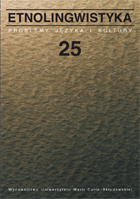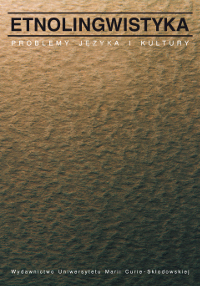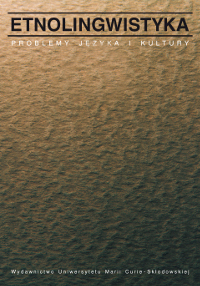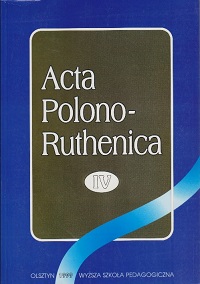Author(s): James W. Underhill / Language(s): English
Issue: 23/2011
Humboldt’s challenge to Cognitive Linguistics: A few brief reflections on the linguistic patterning of truth in Czech, French, English and GermanThe article is mainly concerned with methodological issues; the author concentrates on problems relating to the notion of worldview, especially when applied to linguistic research, pointing to the term’s vagueness, as it denotes both an individual conceptualization of the world and judgments entrenched in culture. He claims that in Great Britain and in America the familiarity with Wilhelm von Humboldt’s conception is insufficient. What frequently escapes the attention of researchers referring to Humboldt is the opposition Ergon – Energeia. Despite the fact that the terms are used in various publications, British and American linguistics does not capitalize on them and as a result studies language as an “object” rather than an exchange between communicating subjects. For Humboldt, language is not so much a “thing” as a faculty used by humans to understand the world. It is “objective” only in the sense of being super-individual: speakers share and negotiate meanings.The article also relates to the discussion on the so called Sapir-Whorf hypothesis, which has recently seen the emergence of two opposing camps: “the defenders of diversity” and “the defenders of the psychic unity of humankind”. A representative of the latter is Steven Pinker, whose ideas are criticized here as based on wrong assumptions of universal concepts (which in fact are typical of English) and omitting comparative research. The origin of this approach is sought in Noam Chomsky’s “transcendental scientific idealism”. On the other hand, empirical comparative research on universals conducted by Anna Wierzbicka is appreciated.The article also deals with the conception of linguistic determinism and its place in linguistics. The conception plays a limited role in Humboldt’s theory, who stresses the creativity of speakers and for whom language, thanks to the workings of the mind (Geist), can blaze new conceptual trails. The article also points to the insufficient reception of the thought of Edward Sapir: in today’s renaissance of linguistic anthropology, especially in the USA, Sapir’s views on creativity, subjectivity and individuality in shaping the language system by its users have largely been overlooked. If American and many other English-speaking linguists rarely relate to Sapir’s work in any detailed manner, it is very much alive in Polish ethnolinguistics (Bartmiński, Wierzbicka).The article also deals with contemporary cognitive linguistics, pointing out that the second generation of cognitive linguists often falls into the trap of “linguistics without language”, for the now predominant paradigm incites one to practice the bad method of studying relations between words and concepts in the English-based linguistic worldview and to accept a priori the universal nature of the conceptualizations within it. However, cognitive-inspired comparative research is noted as valuable, especially in the domain of metaphorization (in Prague or Lublin) – but such research is surprisingly infrequent in English-speaking countries.In the analytical part, the author comments on the concept of TRUTH in Czech, French, English and German, with special attention to the differences between them. He notes the distinction between the English truth and the Czech pravda, identifiable in semantic, morphological and phonetic links between this Czech word and other words, such as opravdový, spravedlivý, právo, i.e. lexemes relating to justice, the legal system and integrity. He also points to the differences between the English truth and the German Wahr, as well as different etymological relations of truth in comparison with the French vrai (from which vraisemblable is derived), translated into English as likely. Another problem is that of the semantics of grammatical gender: the author asks why French vérité, German Wahrheit and Czech pravda are feminine. In his divagations on the influence of gender on our intellectual life he refers to Voltaire and Simone de Beauvoir, as well as the literary output of Fénélon, with the light it casts on the femininity of vérité. He also invokes the poetry of František Halas, who uses the Latin word luna because its Czech counterpart, mesíc, is masculine – a manifestation of the Romantic feminization of nature. The creative dimension of communication, visible in literature, is not restricted, in the author’s opinion, to one style; on the contrary, communicating in language involves negotiations between tradition and innovation, between culture and individuality, and finally between the minds of interlocutors. How to account for these mechanisms is a challenge for linguists.
More...




